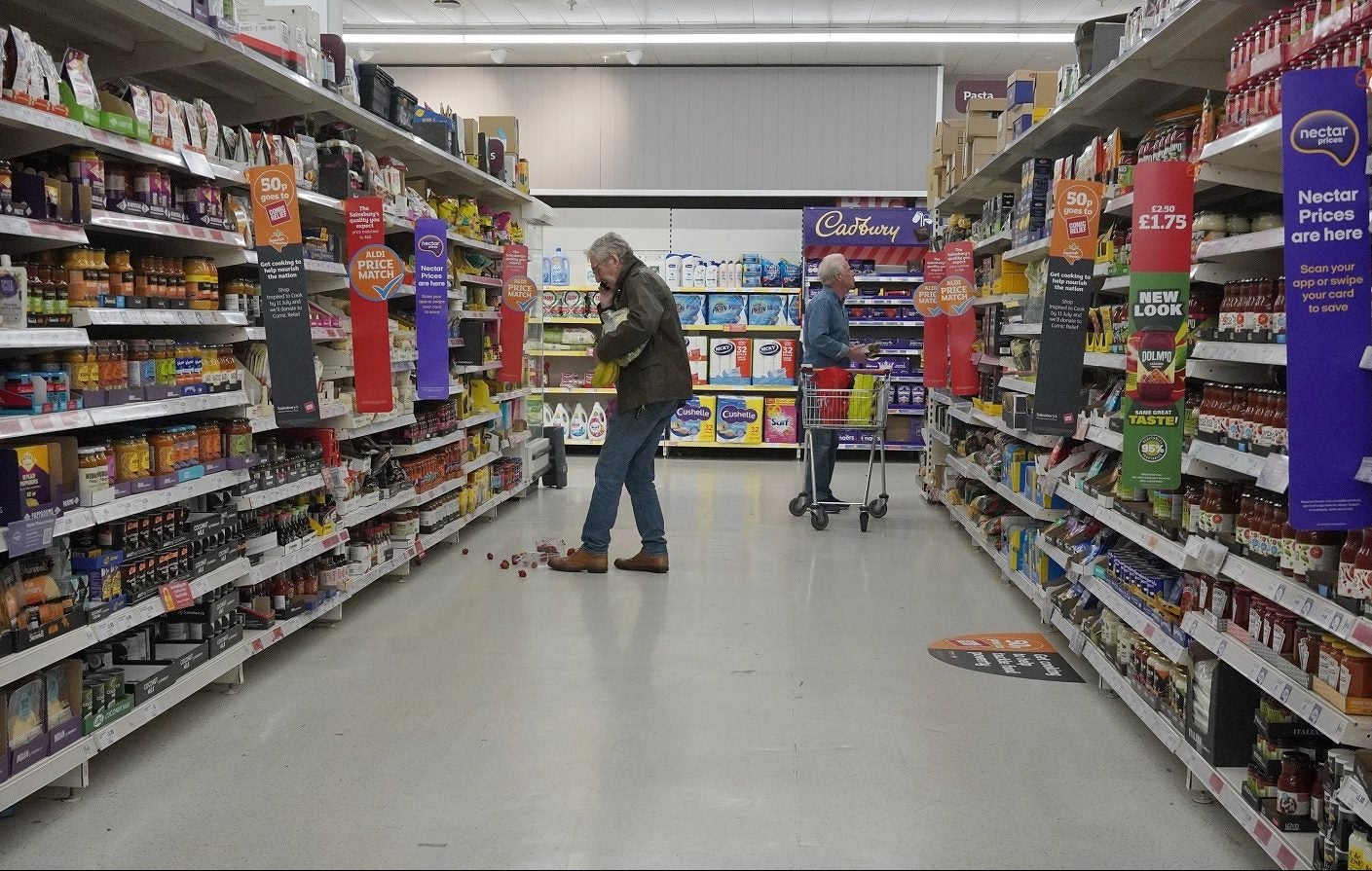
The Competition and Markets Authority (CMA) has criticised the grocery sector for contributing to food and drink inflation.
In a new report, the CMA claimed 75% of manufacturers in certain product categories have raised prices faster than costs.
Food and drink producers have consistently said they are responding to high input-cost inflation when they put prices up but the CMA suggests that is only partly true.
“The evidence collected by the CMA indicates that, over the last two years, around three-quarters of branded suppliers in products such as infant formula, baked beans, mayonnaise and pet food have increased their unit profitability and, in doing so, have contributed to higher food price inflation,” it said.
UK grocery inflation continues to be at historically high levels, despite falling to 10.1% in October. That figure remains the highest among the G-7 countries with French grocery inflation at 7.8%, Germany’s at 6.3% and US food and non-alcoholic beverage inflation sitting at 3.3%, for example.
Sarah Cardell, the CMA’s chief executive, said: “Food price inflation has put huge strain on household budgets, so it is vital competition issues aren’t adding to the problem.”
Access the most comprehensive Company Profiles
on the market, powered by GlobalData. Save hours of research. Gain competitive edge.

Company Profile – free
sample
Your download email will arrive shortly
We are confident about the
unique
quality of our Company Profiles. However, we want you to make the most
beneficial
decision for your business, so we offer a free sample that you can download by
submitting the below form
By GlobalData
Infant-formula makers under scrutiny
The CMA’s report – an autumn update of its review of competition in the groceries sector, which follows an initial assessment of the role played by retailers published in July – was particularly critical of infant-formula manufacturers.
“Baby formula is a product category where different dynamics seem to apply. The prices for baby formula in the UK have risen by 25% over the past two years,” it said.
“Similar to other products the CMA examined, evidence suggests that branded suppliers of baby formula have also increased their prices by more than their input costs. On top of this, the market is highly concentrated – two firms have around 85% of the market share – and brands have maintained high profit margins over the last two years.”
Cardell added: “We’re concerned that parents may not always have the right information to make informed choices and that suppliers may not have strong incentives to offer infant formula at competitive prices.”
The CMA said it plans to examine further whether ineffective competition in the infant-formula market could be leading to parents paying higher prices.
The watchdog, which announced back in May its plans to ramp up its examination into grocery prices, said that, more generally, while some branded suppliers have pushed up prices by more than their costs increased, in most cases, shoppers can find cheaper alternatives, often via own-label products.
It accepted that overall profit margins have fallen across most branded manufacturers since 2021, mainly because of a fall in sale volumes due to consumers switching to those cheaper alternatives.
The CMA said it heard from “leading brands” that they are aiming to use any future reductions in their input costs to offer customers more promotions, rather than cut the standard price they charge supermarkets for their products.
The watchdog also announced that it plans to launch a review of loyalty schemes offered by supermarkets, considering their impact on consumers and competition in the groceries sector.
Responding to the report, Karen Betts, chief executive of The Food and Drink Federation, said: “Companies across our sector are acutely aware of the cost of food and drink and the pressure this is putting on household budgets, adding to raised energy, mortgage and other costs.
“Food and drink manufacturers have been grappling with rising input costs since September 2020, and they have done all they can over the past three years to absorb these costs to shield shoppers from the full impact of inflation. However, with inflation hitting a forty-year high earlier this year, some price rises have been unavoidable, which have varied according to product and manufacturer.”
Betts added: “The huge rises in input costs we’ve seen have undoubtedly been very challenging – one shock would have been difficult, but the successive shocks of Covid-19, Brexit and the war in Ukraine, alongside droughts, wildfires and flooding in Europe in particular, have eroded our sector’s resilience significantly. As a result, across our sector margins are at a 40-year low, insolvencies have doubled and investment has dropped by more than a third.”
However, Jamie Cartwright, a partner at UK law firm Charles Russell Speechlys, warned manufacturers there could be a risk of taking excessive pricing action on branded goods.
“Branded products have always and continue to command a premium; consumers broadly understand that. For manufacturers, the balance is to maintain and increase profit but to retain customer loyalty,” he said.
“Pushed too far on price, where their consumer budgets are tighter and there are increasingly good own-label alternatives, branded products’ market share face a real challenge. If that market share is falling, chasing profit shortfall by price increases on individual products may provide only a short-term reset, as more and more consumers adopt the own-brand products and like them.”

